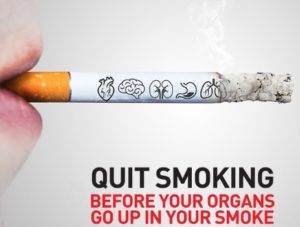After a kidney transplant, the diet and nutrition that you follow will play a major role in your recovery. To ensure that your wounds heal completely, it is very important to follow a proper diet. If you have gone through kidney failure, there may have been a few diet restrictions that you had to follow. However, most of these restrictions are removed after the surgery, which makes it easier to follow a diet plan as compared to the haemodialysis diet.
The Importance of Proper Diet
Proper diet and nutrition form an important part of healing a wound and help reduce the risk of rejection and infection. A dietician will be able to recommend a proper diet plan that is suitable for your lifestyle and the health of your kidney, and in some cases, you may even be allowed to eat certain foods that were earlier restricted for you. The benefits of following a proper diet include:
• Preventing excess weight gain
• Keeping the blood sugar levels within the normal limit
• Help in controlling blood cholesterol
• Help in keeping the blood pressure normal
• Provides calcium to keep your bones strong
• Prevents Anaemia
Diet and Nutrition Guidelines for after Your Surgery
Your dietician will develop a suitable nutritional program that is based on your personal needs and health condition. Your medical reports, weight, kidney function and prescribed medicines are all taken into consideration for developing a proper diet plan. This diet plan can be short-term or long-term, depending on how your health condition improves. Regardless of what your exact diet plan will be, here are some basic guidelines that are to be followed:
• Stay Hydrated: You should drink plenty of water (approximately 2 litres per day). It is very important for you to stay well-hydrated, so you should also limit your caffeine intake.
• Proteins: Protein is important to help you regain any lost weight and muscle strength. Your dietician will be able to recommend how much protein intake is necessary for you.
• Phosphorous: With a new kidney, the body starts rebuilding bone mass that is lost during renal failure. In case there has been a dip in your blood phosphorous levels, your dietician may recommend food that is high in phosphorous, such as low-fat dairy products.
• Potassium: Often, transplant medicines may have an effect on the level of potassium in the body (increase or decrease), which can in turn cause problems with muscle and heart function. You will be recommended food to help control your blood potassium levels as well.
• Sodium or Salt: High blood pressure or fluid retention are some conditions that kidney transplant surgery may cause. In these cases, low-salt food will be recommended. Unlike potassium and phosphorous levels that can be brought under control in a few months, your low-sodium diet may be recommended for a longer duration.
• Fats: For a healthy weight and a healthy heart, your dietician will recommend a low-fat diet.
Food You Should Avoid After Your Kidney Transplant
Based on the health of your kidney, medication, and reports, your dietician will also brief you about high-risk foods that can react with the medication and cause side effects. Some of the foods that people are generally asked to avoid after a kidney transplant are as follows:

• Pomegranate and Grapefruit: Pomegranate and grapefruit, even as juice, can cause strong reactions with the immunosuppressant medication that is prescribed after the surgery and must be avoided.
• Herbs: You should not be taking any herbs or herbal teas as they can react with post-transplant medication and cause complications.
• Raw or Under-Cooked Food: Under cooked or raw food can put you at risk for severe intestinal illness due to your weakened immune system. So, it is recommended that you do not eat under-cooked meat, seafood, or poultry items.
• Unpasteurized Dairy Products: Avoid items like cheeses, yogurts, etc. that are made from raw milk.
• Sprouts: Sprouts like alfalfa or bean sprouts should also be avoided.
Long-Term Management of Nutrition
Long-term nutritional management includes heart-healthy diet and exercises. Many times, the side effects of the prescribed medication can be felt after months or years. Some of these side effects are excess weight gain or high cholesterol levels, which can further lead to heart diseases. Your doctor will monitor the progress of your health and you might also be asked to keep a check on your blood pressure level and weight.
Apart from staying hydrated, a heart-healthy diet includes low-fat milk, lean meat and fish, fibre, plenty of vegetables, and low salt. Regular exercise and cooking food with low-fat oils are highly recommended to patients who undergo a kidney transplant.
Food Safety After Kidney Transplantation
Apart from following a proper diet, it is also very important to maintain proper food safety. Despite following the recommended diet, if food is not handled properly, it may lead to serious issues. Here are some guidelines that you can follow to ensure food safety:

• Wash your hands properly before you handle food, especially after you have touched raw meat, chicken, or fish,
after handling pets, etc.
• Store raw and cooked food separately
• Cook food thoroughly
• Check labels of food for ingredients, expiry dates, etc.
• Avoid smoked meat, sushi, fish, unpasteurized dairy products, etc.
• Be careful when eating out
After a kidney transplant, for many people, it is after a long time that they are able to enjoy normal meals. Some may even feel an increase in their appetite, which may lead to overeating and excessive weight gain. While a new kidney may not require dialysis, the chances of damage still exist. A balanced diet can help reduce the chances of complications and can help control the conditions that can cause kidney failure. Depending on your health condition, your doctor and dietician may make changes in your diet plan as the main aim of having a proper diet and nutrition plan in place after a kidney transplant is to promote your overall sustainable health and wellness.


